A sure bet: T&BB interview with İshak Şikar and Hakan Ünlü on the long and fruitful relationship between Maxion Wheels and Turkey
By Bradley Osborne - 13th August 2024
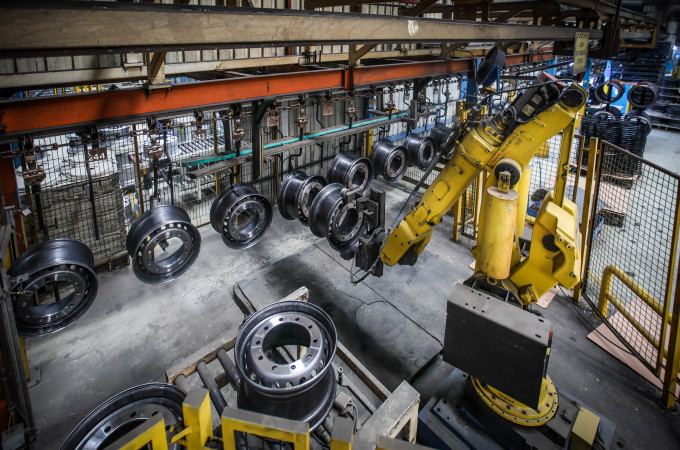
Finished wheels from the Maxion Jantaş production line
Turkey – At this year’s Busworld Turkey, held between 29-31 May at the Istanbul Expo Center, I met with İshak Şikar, Sales Director Commercial Vehicle for Europe and Turkey at Maxion Jantaş, and Hakan Ünlü, Vice President of Turkey Operations at Maxion İnci, to discuss the past, present, and future of Maxion Wheels’ business activities in the country. While much of our conversation revolved naturally around the bus and coach industry, I learned a lot about wheel production for all segments, including light vehicles and trucks. Moreover, we talked in depth about what has made Turkey such an attractive location for industry, and why it will continue to be a good place to do business despite the ongoing currency crisis.
Telling me a bit about the recent history of Turkey’s economy, Şikar and Ünlü said that Turkey was known for its chronically high inflation rates until 2001, when sound fiscal policies brought a reduction in price rises. At the same time, relations with the European Union became closer, and the prospect of eventual entry as a member state became a distinct possibility as Turkey applied for candidacy in late 2005. These factors created a favourable environment for business, leading to an economic boom in the period between 2003 and 2010 and total foreign direct investments of USD15-20 billion every year.
The high inflation of today might appear to presage a return to the pre-2001 situation; however, the golden years of the 2000s have put Turkey on quite a different footing in 2024 than in the twentieth century. Şikar and Ünlü said that Turkey is the fourteenth largest automotive market in the world, and the fourth largest vehicle manufacturer in Europe. Around 1.5 million vehicles are produced every year, putting it in the 16th position in the global rankings for production. Furthermore, the country is of outsize importance to the commercial vehicle industry, particularly the bus and coach segment. Some of the major European OEMs – MAN, Daimler Buses, and Iveco – produce large quantities of buses and coaches in Turkey for export to Europe and elsewhere. Truck and light commercial vehicle manufacturing is also significant. Ünlü cited the example of domestic firm Ford Otosan, which aims to produce 600,000 ‘Transporter’ vans per year for Volkswagen by 2027.
The Maxion Wheels location in Turkey, which is jointly owned by Maxion and the İnci Group, is based in Manisa, near the city of İzmir on the southwestern coast. The history of wheel manufacturing in Manisa stretches back to the mid-twentieth century, when Cevdet İnci established ‘Jantaş’ to produce steel wheels. The Jantaş name survives to this day, under the ‘Maxion Jantaş Jant Sanayi ve Ticaret A.Ş.’ subsidiary which is 60% owned by Maxion Wheels. Today, Maxion Jantaş refers to the CV steel wheel business in Turkey, whereas Maxion İnci refers to the light vehicle steel and aluminium wheel businesses (although both companies are joint ventures between Maxion and the İnci Group).
In Manisa, Maxion produces its full range1 of steel and aluminium wheels, the former for light and commercial vehicles, the latter for light (i.e., car and light commercial) vehicles only. However, next year, Maxion will kickstart production of forged aluminium wheels for heavy vehicles, a first for the company.2 The Turkish location is an important production base for the global Maxion business. Although our conversation focused mainly on Turkey, around 70% of the output from Manisa is exported to the rest of the world, making it a crucial supplier base for Maxion’s overall export operations. Moreover, the fact that the Manisa site can serve every segment makes it very flexible, allowing Maxion to respond effectively to changing demands anywhere in the world.
1 With the exception of agricultural wheels, which Maxion produces in Brazil only.
2 See the original announcement, as reported on our website: https://truckandbusbuilder.com/article/2022/09/28/maxion-wheels-expands-truck-wheel-range-with-lightweight-steel-and-forged-aluminium
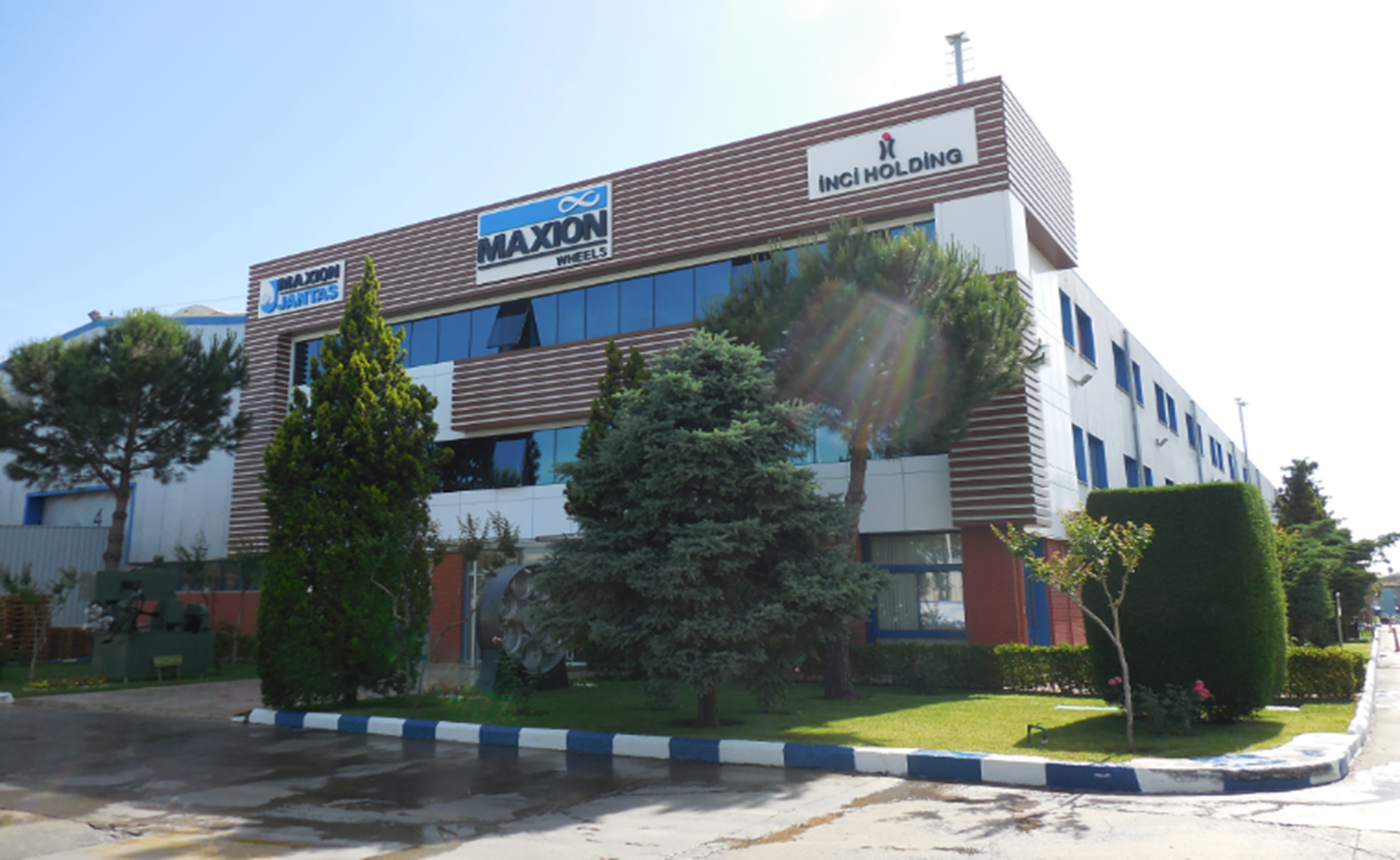
Maxion Jantaş building in Manisa, Turkey
History of wheel production in Manisa
The Jantaş operation was founded by Cevdet İnci in 1968. At that time, he was already the successful owner of an automotive parts and tyres business called İncitaş, which is still in operation (as part of the İnci Holding) today. In the sixties, İnci was regularly travelling to Europe to buy new machinery when he met a German family called Lemmerz, owners of the Lemmerz wheel manufacturing company. İnci began purchasing machinery from Lemmerz in order to set up his own plant for CV wheel production, and the relationship between the two continued up until 1992, when the Lemmerz family acquired a 25% stake in Jantaş.
Two years later, İnci, together with Lemmerz, established steel wheel production for passenger cars at Manisa. In 2003, the American company Hayes acquired Lemmerz, and ownership of the Lemmerz shares in the Jantaş and İnci plants passed over to the new entity, Hayes-Lemmerz. Then, in 2012, Hayes-Lemmerz became Maxion Wheels, and the Maxion name was adopted for the Turkish joint ventures.
Before it came under the (part-)ownership of Hayes Lemmerz in the 2000s, the operations at Manisa were relatively small. Giving a brief outline of the context in the twentieth century, Şikar explained that Turkey prior to 1983 was “a relatively closed economy”, with little in terms of imports and exports. At that time, Jantaş was one of just a handful of domestic firms producing wheels for the local market. But in 1983, a new government came in which began opening the Turkish economy to imports and exports, and European and Japanese manufacturers started to invest in the country’s industry. “During that time”, Şikar said, “Jantaş was already in the market and had established a solid brand reputation. So when the market opened up, Jantaş early on became one of the preferred suppliers [of wheels].” Jantaş has since passed through the hands of Lemmerz, Hayes-Lemmerz, and Maxion Wheels, and while it has changed significantly since the 2000s, there is a clear line of continuity between the Maxion-İnci site today and the Jantaş concern established by Cevdet İnci back in 1968.
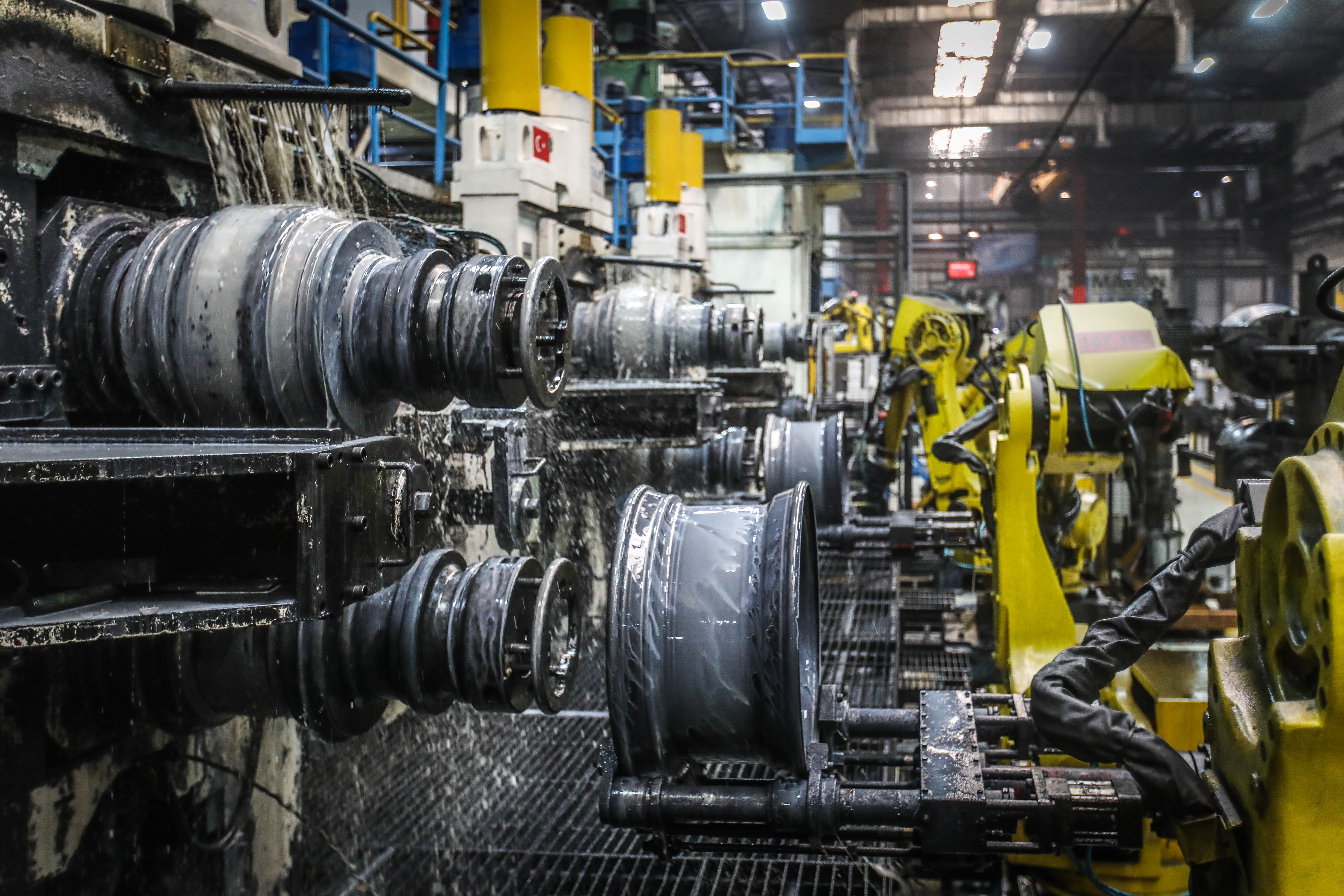
Production line in the Maxion Jantas CV steel wheel plant
Facts and figures about the Turkish operations
The Maxion-İnci site in Manisa covers an area of 200,000 square metres and comprises five plants with an overall installed capacity of more than 12 million wheels, steel and aluminium, per year.
Prior to the acquisition of Jantaş in 2004, the site had a single plant focused purely on car and truck steel wheels. Light vehicle aluminium wheel production was launched in 2006, and it took five years to reach full capacity. Subsequently, a second plant was opened in 2012, increasing annual installed capacity to around 4.5 million aluminium wheels. Next year, a facility for producing forged aluminium wheels for trucks will open, commencing with an annual capacity of 350,000 and scaling up to double that in the years to come. This facility will be the third aluminium wheel plant at the Maxion İnci site and the sixth plant overall.
The annual installed capacity for steel wheels from Manisa currently stands at approximately 4.7 million for light vehicles and 3 million for trucks. The second light vehicle steel wheel plant was opened in 2018. Truck steel wheel capacity was expanded by a further 1.5 million when a third plant was opened in 2022.
Since 2005, significant investments have been made in the Manisa site, resulting in a tenfold increase in annual turnover. Over USD150m (i.e., over EUR140m) will be invested by Maxion and İnci between 2021 and 2025. These investments will maintain the position of Maxion’s Turkey operations as one of its most important sites globally, while also making it the first to produce forged aluminium wheels for trucks.
Şikar and Ünlü commented briefly on the decision to enter the forged aluminium truck wheel market, which up until now has been dominated by a single competitor. According to Şikar, the demand for lightweight wheel solutions is expected to increase over the next decade as more commercial vehicles approach maximum payload. Additionally, aluminium wheels for commercial vehicles will receive a further boost from the rise of heavy electric vehicles, which are projected to make up 40% of the market by 2030.
The company decided to invest in forged aluminium wheels to complete its truck wheel portfolio and extend its reach to those applications where aluminium is the preferred solution. It is the missing link to our otherwise comprehensive product line […] As the only supplier in the market offering both steel and aluminium wheels, we will be able to assess real needs and tailor our solutions to our customers' specific situations and applications.
said Şikar.
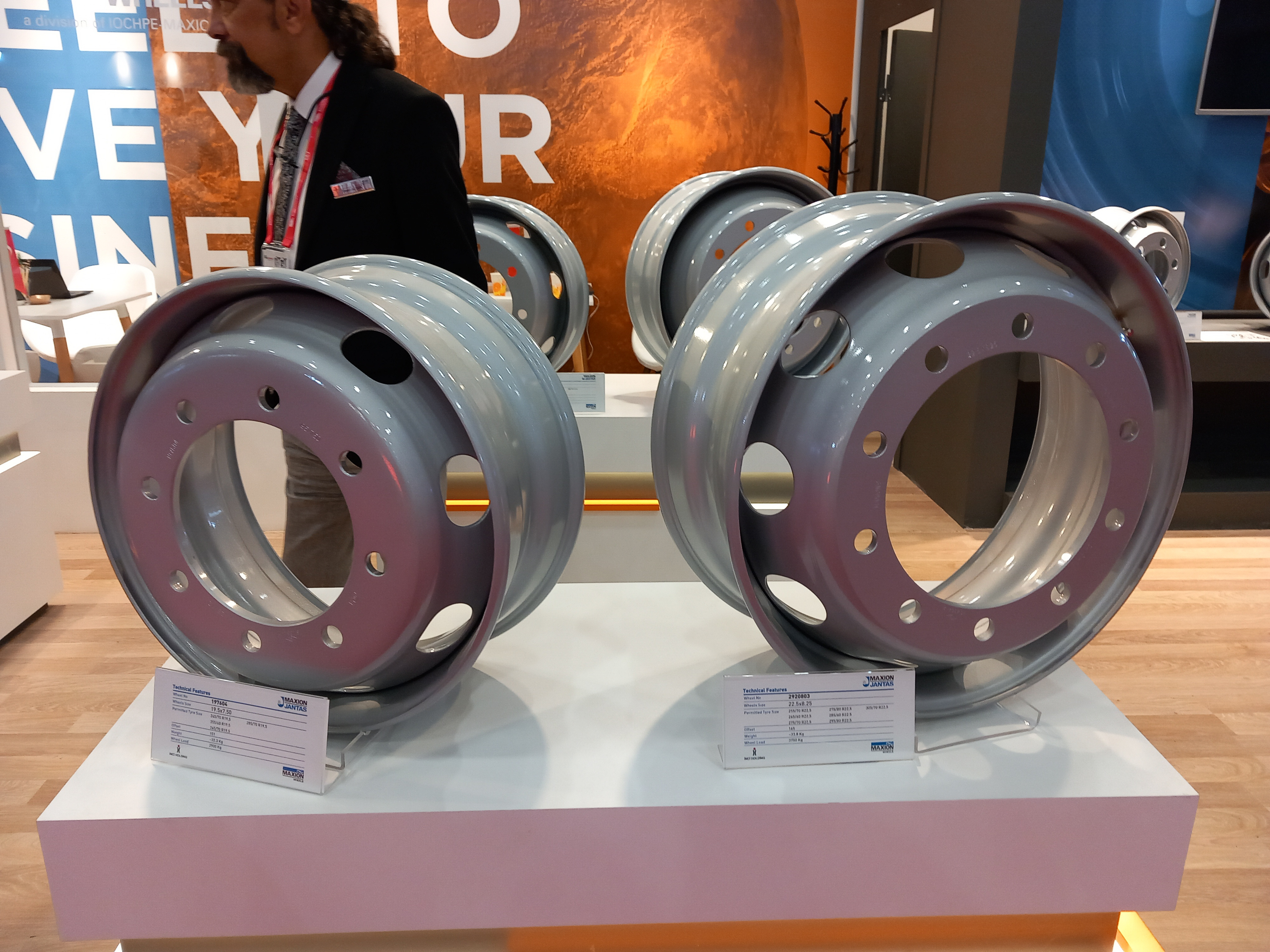
CV steel wheels presented at Busworld Turkey
Outlook for the Turkish economy
In our discussion about the outlook for the automotive industry in Turkey, Şikar admitted that the country is “sometimes not an easy place to do business in”. It was a wonderfully understated reference to the economic crises the country has faced since 2018, when the national currency, the lira, began to fall in value against the dollar. In 2021, the value plunged even further, and the annual rate of inflation reached a staggering 78.6%. Rising costs have dented somewhat the reputation of Turkey as a low cost place to do business.
While the current state of Turkey’s economy is a far cry from the golden years of the 2000s, Şikar and Ünlü remain optimistic about the future. “Turkey has very strong domestic potential,” said Şikar. Because the transportation of both people and goods still overwhelmingly takes place on the road rather than on rail, Turkey is still a growing market for new trucks and buses. Added to this is the rapid expansion of the cities and infrastructure, creating more and more demand for new bus services; the municipality of Istanbul regularly bids for up to 2,000 buses at a time.
As a quality manager in the bus segment back in the 2000s, Ünlü was well placed to view the growth firsthand of the bus and coach industry. He worked briefly at MAN’s Turkey operations and has visited the Mercedes plants in Aksaray and Hoşdere. In the 2000s, Mercedes was producing roughly 3,000 vehicles at its Turkish plants per year. Today, its annual production is closer to 13,000, and demand is still increasing. “If you asked to buy a new bus, you are waiting for six to eight months, due to high demand”, Ünlü said. “That’s the main driver. They are really serving high quality to the market, and the customer is still demanding [more].”
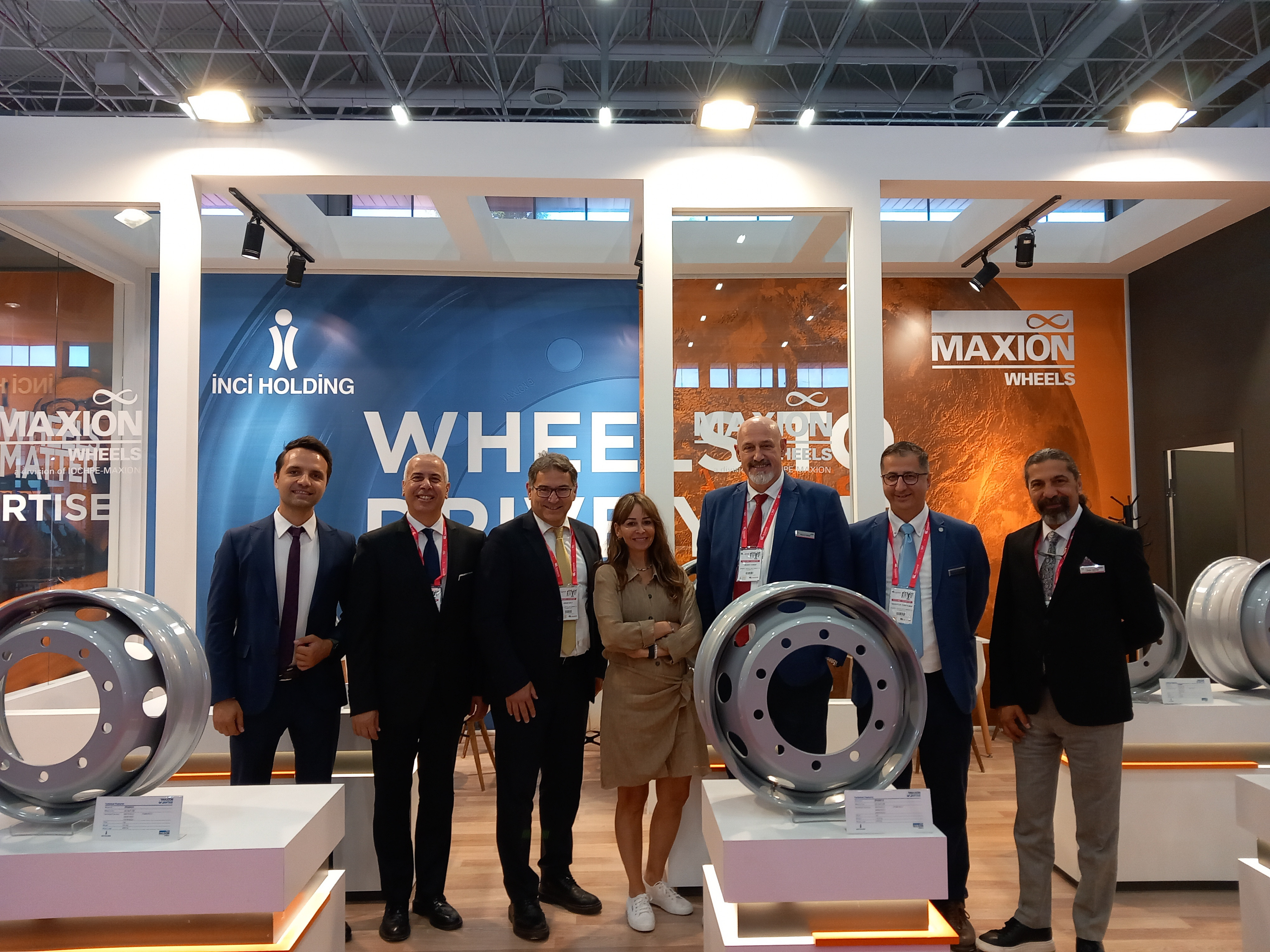
The Maxion Wheels team at Busworld Turkey
Together with its strong domestic potential, Turkey remains a crucial base for the production of exports to Europe. “There is good infrastructure, a skilled workforce, and a high degree of production flexibility, which is badly needed in bus manufacturing,” Şikar said. Moreover, labour costs remain low in comparison to Europe. “Therefore, Turkey [still] provides leverage to remain competitive as a bus manufacturer versus competitors,” Şikar concluded.
Growing vehicle production, of course, means greater demand for wheels. It is fair to say, then, that despite the “turbulence” in the wider economy, the Turkish automotive industry has held on to most of the advantages which allowed for its rapid development in the first place. Both Şikar and Ünlü are inclined to see Turkey’s current troubles as a blip in the upward trend and not as a harbinger of long-term decline. Far from being an economy set for contraction, Turkey is forecast to continue growing while other advanced economies shrink due to aging populations. Turkey’s population stands at around 85 million, of which nearly 26% is the young generation, poised to enter the workplace in the near future. The country remains a good place to do business; as Şikar put it:
Maxion Wheels bet on Turkey, and each and every time the return was more than satisfactory. That is the best motivator for us to look to the future in a very confident way.
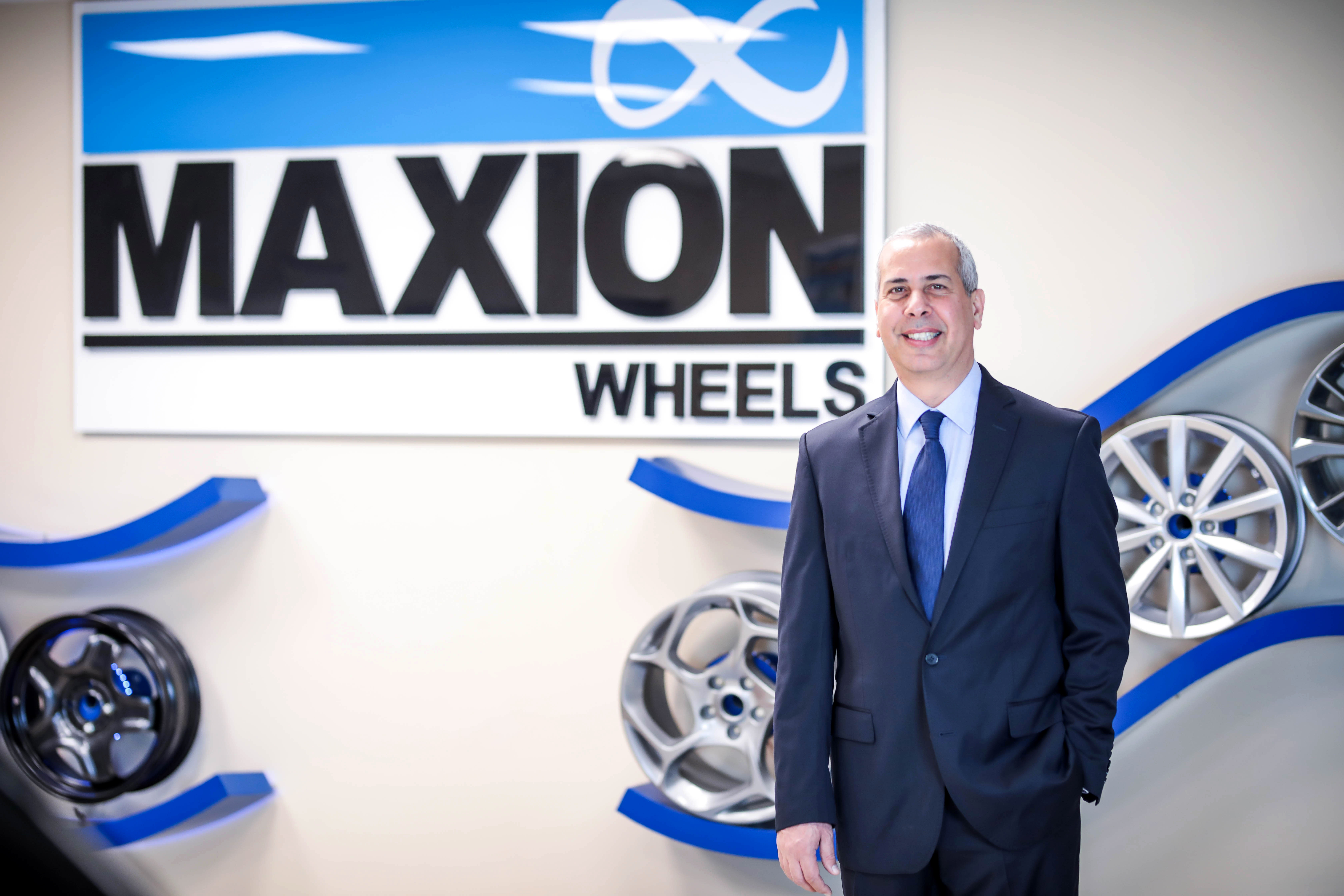
Ishak Şikar is the Turkey Sales and Europe Commercial Vehicles Director at Maxion Wheels. With a career spanning over two decades, Şikar began at İnci Holding in 1999, where he held the position of Deputy CEO before transitioning to Janta as Sales and Marketing Manager and eventually, as Commercial Vehicles Sales Manager at Hayes-Lemmerz. Since 2011, he has led the Europe and Turkey Commercial Vehicles Sales team at Maxion Wheels. Prior to his tenure at the Maxion İnci Wheel Group, Şikar served as Deputy General Manager at Rotring Turkey.
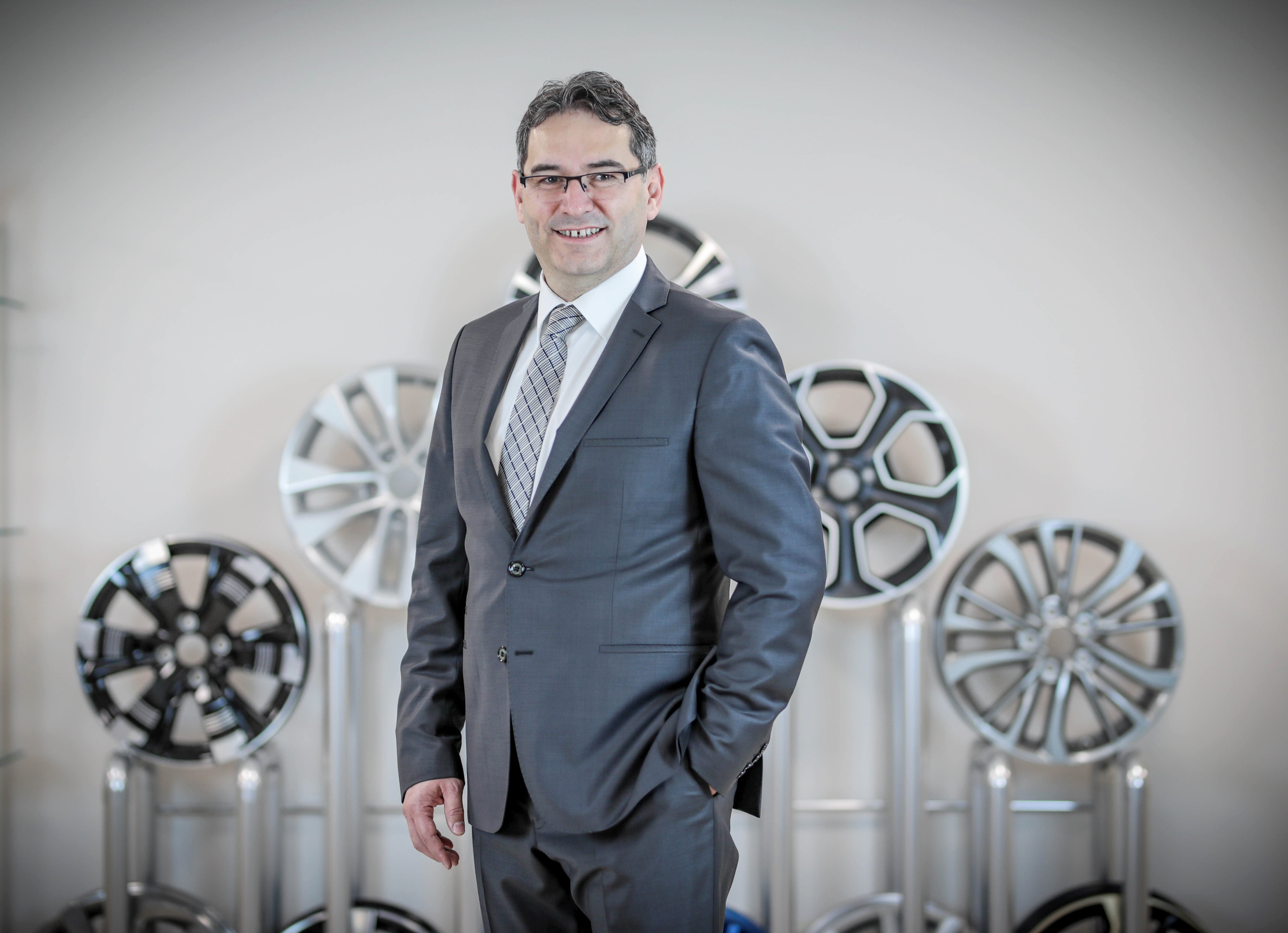
Hakan Ünlü serves as the Vice President of Turkey Operations (TRO) at Maxion Wheels. With over 30 years of experience in the automotive and electronics industries, Ünlü began his career as a Quality Manager at Hayes Lemmerz Jantaş. He was subsequently promoted to TRO OpEx Manager and later became the General Manager of the newly established light vehicle aluminium wheel plant. By 2014, he was overseeing all four plants in Turkey Operations. His role expanded in 2018 to include African operations. He took on his current role on 1 January 2024.


